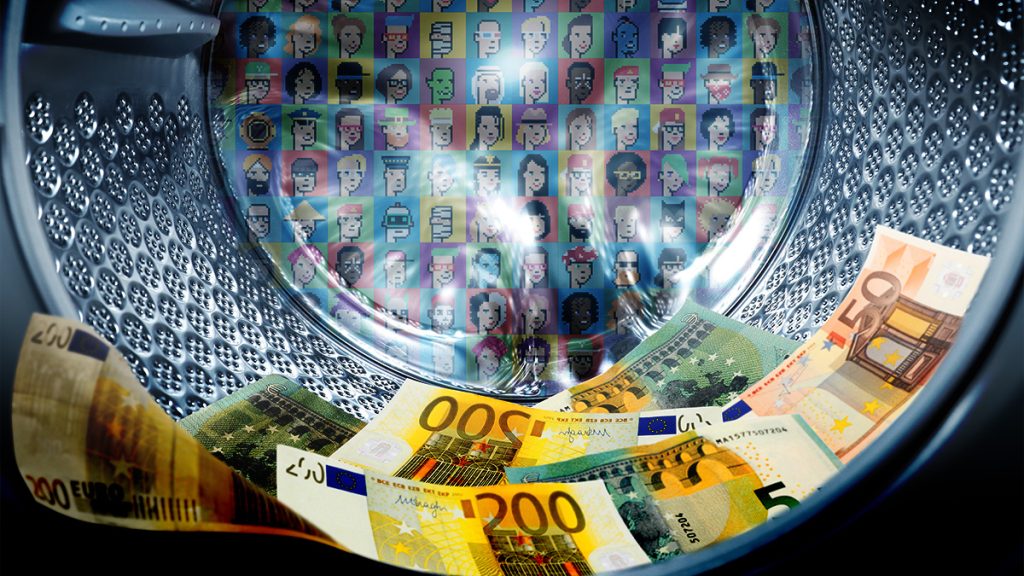
The rise of Non-Fungible Tokens (NFTs) has generated much excitement in digital assets. Still, it has also raised concerns about their potential for misuse in illicit activities such as money laundering. In response to these concerns, governments worldwide have begun to examine the regulations of NFTs, seeking to balance the benefits of these tokens with the need to maintain the integrity of the financial system. Upon finding this balance, they implemented regulations to prevent money laundering. Below, you will read about the rules done by the governments on NFTs. Dig deep, and you will find that governments are planning to set rules and regulations on NFTs and to set a plan to control them.
NFTs Under Regulations
Despite NFT’s potential to revolutionize the art and collectibles market, NFTs also raise concerns about their potential use in illegal activities such as money laundering.
One of the government’s primary concerns is using NFTs for money laundering. The decentralized nature of NFTs makes it easy for individuals to transact anonymously, which can be used to launder money by converting it into a digital asset. The public ledger of NFT transactions makes it difficult for authorities to trace the origin of funds, and the lack of traditional financial regulations makes it challenging for authorities to monitor and regulate the market. To address this concern, governments are considering implementing rules to ensure that NFT transactions are subject to the same anti-money laundering regulations as traditional financial transactions.
Europe
EU has taken a comprehensive approach to NFT regulation, covering all aspects of the NFT ecosystem, from creation and sale to transfer and custody. The EU has imposed strict requirements on NFT platforms to verify the identity of their users and to monitor transactions for signs of illegal activity. In addition, the EU has mandated that NFT platforms comply with anti-money laundering (AML) and countering the financing of terrorism (CFT) regulations, which include the requirement to report suspicious transactions to the authorities.
The EU’s NFT regulations cover all aspects of the NFT ecosystem, from creation and sale to transfer and custody. NFT platforms are required to verify users’ identities and monitor transactions for signs of illegal activity. Also, complying with anti-money laundering (AML) and counter the financing of terrorism (CFT) regulations. This includes the requirement to report suspicious transactions to the authorities.
In addition to these measures, the EU has also introduced consumer protections on NFT users. This protections include the requirement for NFT platforms to provide clear and accurate information about the NFTs they offer and measures to prevent the sale of counterfeit or fraudulent NFTs.
The EU’s NFT regulations represent a significant step forward in regulating digital assets. They also sent a clear message about the importance of the responsible and safe use of NFTs.
Middle East
The Middle East still didn’t consider the regulation of NFTs against money laundering. The Middle East will likely follow a similar approach to the EU regarding NFT regulation. They will focus on AML and CFT requirements, user identification, and transaction monitoring. However, it is still too early to say what the specifics of NFT regulations in the Middle East will be, as the region is still evaluating the potential benefits and risks of NFTs.
Discovering Intentions
The decentralized nature of NFTs has raised concerns about their potential use for illegal activities, such as money laundering and tax evasion. As a result, governments are considering implementing these regulations to control NFTs and set them under their authority. There is no doubt that, like any other type of digital currency, NFTs have attracted the attention of governments worldwide. Following that attraction comes hidden intentions to control and regulate the use of these digital assets.
Governments will always lay a hand on any technology that threats their authority. Take the CBDCs as an example; the government issued this digital currency to preserve its authority since cryptocurrencies are rising. In the case of NFTs, they initially attempted to impose strict regulations on them, then they started to implement more rules to gain more control over them, and finally, they will issue a similar currency to be ahead of them. One example is the UK government, which has begun to lay out plans to implement its non-fungible tokens in order to get a head start on NFTs.
This shows that governments kept an eye on NFTs all the time. Then at the right time, they exploit money laundering as a solid legal reason to interfere. However, behind issuing these regulations there are hidden agendas planning to gain control over them.
Final Thoughts
The regulation of NFTs is a concern that’s attracting the attention of all governments worldwide. Whether it’s about illegal acts such as money laundering or the persistent fear of NFTs getting higher authority. The question is: Will NFTs handle the competition and the pressure the governments impose on them?
Inside Telecom provides you with an extensive list of content covering all aspects of the tech industry. Keep an eye on our Web3 section to stay informed and up-to-date with our daily articles.